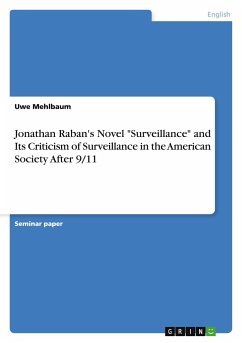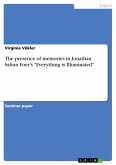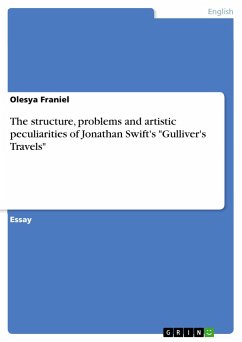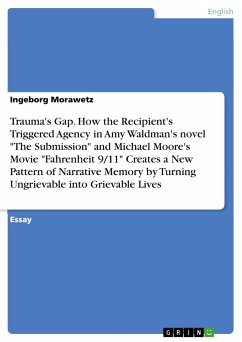Seminar paper from the year 2010 in the subject American Studies - Literature, grade: 1,7, University of Bayreuth (Anglophone Literaturen und Kulturen /Amerikanistik), course: HS 9/11 and American Literature, language: English, abstract: I. IntroductionIn the aftermath of the terrorist attacks on the World Trade Center on September 11th 2001 (9/11 hereafter), much has been said and written about the spectacular, almost incredible crime, which could be witnessed by large parts of the world's population live on television. In order to be able to cope with the events and understand what happened on that day in September 2001, many works of fiction and non-fiction, that deal with the events of the attacks, have been created. (...) Now that almost nine years have passed since the day when the planes hit the World Trade Center and the buildings collapsed, the incidents and the aftermath can be viewed from a certain distance and much of the work, that was written and created in order to be able to cope with the events, offers itself for an analysis. The novel Surveillance (2006) by Jonathan Raban is part of the literature that deals with the aftermath of 9/11. However, unlike most of the literature that is focused on this situation and this period of time, the actual attacks do not play much of a role and (apart from one exception on page 136) remain almost unmentioned throughout the novel. Surveillance rather focuses on the years after the attacks and the prevailing anxious atmosphere in the American society of that time. The novel depicts the life of a fictional character named Lucy Bengstrom and her daughter in Seattle in the years after 9/11. The society which Lucy lives in, is coined by an atmosphere of menace, uncertainty and surveillance, much of which is based on the political decisions that followed 9/11. In its first part, this seminar paper discusses the topic of surveillance itself. It will try to answer how surveillance became such apresent topic in today's media and briefly debate the controversy by which it is surrounded. Secondly, this seminar paper analyses the writing style of Jonathan Raban's Surveillance and the conclusions that can be drawn from it concerning the topic of surveillance. The third part focuses on the content of Jonathan Raban's novel Surveillance. It analyses Jonathan Raban's more direct statements and conclusions concerning the topic of surveillance.
Hinweis: Dieser Artikel kann nur an eine deutsche Lieferadresse ausgeliefert werden.
Hinweis: Dieser Artikel kann nur an eine deutsche Lieferadresse ausgeliefert werden.








